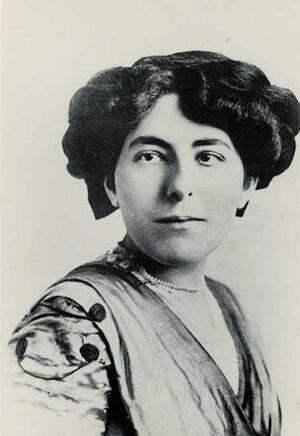Premiere of the musical "Show Boat," based on a novel by Edna Ferber
When Edna Ferber published Show Boat in 1926, she was already an established writer, with eleven books, two stage plays, and a Pulitzer Prize (for So Big, 1925) to her credit. But when the musical adaptation of the novel opened on Broadway on December 27, 1927, with lyrics by Oscar Hammerstein II and music by Jerome Kern, it was unlike any earlier production. Combining music and dance with fully formed characters and serious themes, Show Boat departed from both operetta and the musical comedy revue, establishing a new style of American musical.
Ferber's work in Show Boat and in later novels grew from a keen eye and a gift for observation of the world around her. Raised in often precarious economic circumstances in small towns in Iowa and Wisconsin, Ferber used her novels to explore America's range of distinctive and evocative regional cultures. She always identified with the lives of ordinary working people, believing that they had "a kind of primary American freshness and assertiveness." She tried to communicate those qualities and do justice to the lives of working folks in all of her writing.
Ferber's work also drew on the oppression she felt she had experienced as both a woman and a Jew. Subjected to antisemitism as a child, she felt she had gained strength from facing her tormentors. Similarly, she believed that women's experience of social limitations led them to develop special strengths. Many of her early works featured strong women overcoming social obstacles to achieve professional success. Show Boat, which tackled the theme of interracial marriage, also addressed the issue of social constraints.
After its successful Broadway debut, Show Boat ran for 572 performances, and was later made into a film twice. Revival performances continue to entertain audiences across the country.
Sources: Jewish Women in America: An Historical Encyclopedia, pp. 415-417; Marion Meade, Bobbed Hair and Bathtub Gin: Writers Running Wild in the Twenties (New York, 2004); Joseph Swain, The Broadway Musical: A Critical and Musical Survey (Lanham, MD, 2002); Edna Ferber, A Peculiar Treasure (New York, 1939).




As a woman and a Jew, in a profession where visibility brings such important responsibility (I am a university professor), I am thrilled to find a kindred spirit in Edna Ferber. I particularly like the way this account makes Ferber's experience as a woman and a Jew central to her writing, especially since the popular conception of SHOWBOAT elides this fact, absorbing Ferber's feminist and Jewish identity into a muddle of invisibility in a mechanism that we are all too familiar with.